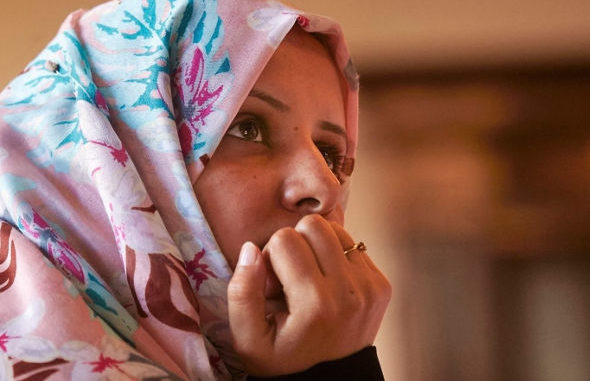
Source: New Internationalist
The Yemeni human rights defender talks to Lydia Noon about Britain’s arms deals, drones and gender discrimination during the war.
How and why did you get involved in human rights in Yemen?
I have felt a sense of guilt about people who are oppressed since I was a child. My activism started in 2004 during a six-year war between the regime of former Yemeni president Ali Abdullah Saleh and the Houthis, an armed rebel group.
I wrote several opinion pieces against war and its abuses. Some families of those arrested in Sana’a (Yemen’s capital city) asked for my help, and alongside other male and female activists, I stood with them. We organized several campaigns opposing detention and war.
How has life changed for you since the start of the civil war in 2015?
The situation in Yemen wasn’t good – even before the war. Since the Houthis took control of Sana’a in 2014, and the Saudi-led coalition launched their aerial military campaign in March 2015, every family in the country has been shedding tears: either for a relative lost in the war or a detainee confined behind bars.
Citizens are now without a state or a constitution to protect their rights. Political parties are not providing the basic essentials for people in government or Houthi-controlled areas. Yemenis are stranded between the aerial and ground violations of the parties involved.
I am a part of this nation and the suffering of others is mine as well. But I have decided to face this situation and continue my work.
What is life like for women in Yemen?
Yemeni women have the same but double sufferings [as men]. Many women suffer from a lack of education, early marriage, exclusion from political participation and other forms of discrimination. But if a woman has the support of her family then nothing can stand in her way; there are no laws preventing her participation in all aspects of life.
You are the chairperson of the Mwatana organization for human rights. What kind of things do you do?
Mwatana follows an investigative research approach to ensure accurate documentation of human rights violations. We play a lobbying and advocacy role to support victims of human rights abuses.
Besides publishing reports and documentaries, we monitor and publish information on arbitrary detention and forcible disappearances, facilitate contact between detainees and their families and work to set all those arrested and disappeared free. We also work on training and awareness-raising as part of our mission to create a human rights collective awareness.
It sounds like risky work. Have you been the target of intimidation?
Some fellow civil society activists and I were once beaten by a group of women that the Houthi armed group sent to disperse a protest where we were demanding to know the destiny of a forcibly disappeared civilian. We were detained for hours.
The executive director of Mwatana, Abdulrasheed Al-Faqih, has been arrested twice by the Houthis and has had his passport confiscated on a separate occasion. Four Mwatana field researchers have been arrested and released at various times; one of them spent over two weeks in detention.
Britain sells weapons to Saudi Arabia, do you think this makes it complicit in the war in Yemen?
Britain hurts itself when it insists on supporting a state that has committed documented war crimes against Yemeni civilians.
Mwatana has documented the aerial attacks against civilians in which British weapons were used. Britain’s support of Saudi Arabia is not limited to the selling of weapons; it also provides political and intelligence support.
It is so hurting and frustrating that Britain has supported Saudi efforts of preventing an international, independent inquiry mechanism to investigate violations of all parties to the conflict in Yemen. No matter how high the mutual interests between Britain and Saudi Arabia, the blood cost is ultimately higher.
The number of drone strikes in Yemen increased drastically under the Obama administration. Do you expect more of the same under Trump?
The first US drone strike under President Trump took place in the al-Baidha province [on January 21] and killed 15 civilians – ten children and five women, documented by Mwatana. This is a very big number and the military target of the operation is still unclear.
As usual with the drone program, transparency is absent. The new worrying development in these drone operations is the accompanying ground raids which seem random and careless about civilians.
Is there enough humanitarian assistance on the ground in Yemen?
Humanitarian assistance cannot be enough because the catastrophe is too big and can only be addressed by state capabilities. Humanitarian organizations are trying to play an important role but they only bridge gaps.
The accessibility of such organizations on the ground is restricted due to setbacks posed by various armed groups. The end of the humanitarian catastrophe in Yemen demands the end of the war in the first place.
